Over the past two decades, ‘Fight Club’ has had a profound impact on modern culture. Its sharp critique of consumerism and its exploration of masculinity continue to spark conversations about authenticity, rebellion, and self-discovery. This post delves into the anarchic world of Fight Club, Neurotics and Tyler Durden. We explore the valuable lessons we can glean from some of the unconventional and thought-provoking philosophies found in this twisted tale.
The first rule of Fight Club is…
Written in 1996 by Chuck Palahniuk (later adapted into the highly successful film directed by David Fincher and starring Brad Pitt and Edward Norton) Fight Club is a twisted tale about a neurotic, insomniac American wage slave Jack (Norton). (The main character is actually unnamed, but sometimes is referred to as ‘the narrator’ or as ‘Jack’, which comes from a medical book that he stumbles across). ‘Jack’ assesses insurance claims for a living and in turn, spends the money he earns buying things he thinks he needs from the Ikea catalogue. Things he believes help define him in an otherwise empty existence.
‘Fight Club‘ struck a cultural nerve and left an indelible mark on the modern male psyche. Through its thought-provoking narrative and compelling characters, the story delves deep into the complexities of contemporary masculinity, offering a critical lens through which to view societal norms, consumerism, and the yearning for authenticity. In this exploration, we’ll uncover the profound impact this tale has had on the way men perceive themselves and their roles in a rapidly changing world.
First off, if you have not read the book or watched the film, you should go do that. If you don’t wish to, no worries I’ll outline what I can and give the heads up if a paragraph contains a spoiler.
I can't get no sleep.. The Story (without spoilers)
The story revolves around an unnamed protagonist, referred to as ‘Jack’ in the movie. Jack is a neurotic insomniac trapped in the mundane existence of an American office drone. His job involves evaluating insurance claims by day which he finds utterly unfulfilling. Jack attempts to fill the void in his life by compulsively buying items from the Ikea catalogue, hoping they will define him. To cope with his insomnia, Jack infiltrates various support groups, assuming false identities and mimicking the afflictions of others. Despite the temporary relief gained from these encounters, Jack remains emotionally and spiritually hollow until he crosses paths with the enigmatic Tyler Durden.
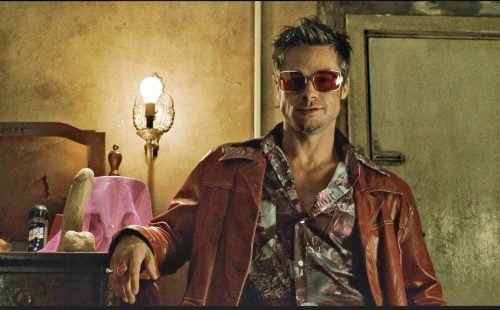
Tyler, stands as Jack’s antithesis—a rebellious, self-sufficient alpha male with a disdain for societal norms. Together, they establish Fight Club, an underground boxing enclave where men seek solace by engaging in physical combat. Fight Club becomes an unconventional outlet for men to tap into their primal instincts, an attempt to feel alive in their otherwise mundane lives. The fights, devoid of hierarchy or titles, serve as a therapeutic experience, allowing participants to embrace their primal essence fueled by adrenaline and testosterone.
Insane Odyssey
“Fight Club ” eventually transforms into “Project Mayhem”. The Fight Club members, led by Tyler Durden, shift from fighting for personal liberation to embracing a broader, anarchic mission aimed at dismantling societal norms and institutions. Under Tyler’s mesmeric influence, they transition from underground fights to a more radical and destructive agenda. Avoiding spoilers, Jack’s journey, guided by Tyler, escalates into an audacious mission to dismantle the oppressive credit card system, liberating individuals from the chains of debt.
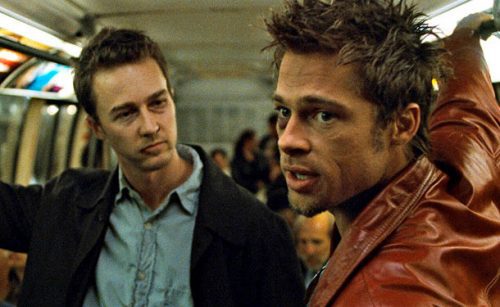
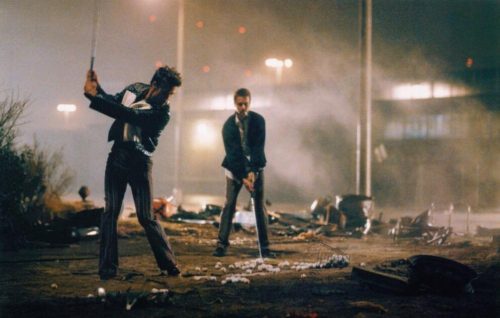
After Jack encounters Tyler, his life takes a drastic turn from mundane routine to a chaotic and unconventional existence, marked by rebellion, self-discovery, and the dismantling of societal norms.
Legacy
Released in the ’90s, “Fight Club” left an indelible mark on the male psych. The story explores profound philosophical questions surrounding freedom, masculinity, existence, consumerism, and the pursuit of an authentic self. Tyler and Jack’s continual debates on the issues acting as an ongoing metaphorical distinction between who we are and who we want to be. The Id vs the Ego, the desire to be free, confident, and our ideal selves. Tyler Durden, controversial yet iconic, beckons modern men to reflect on the collective direction of humanity and whether a crucial element is absent from their lives.
Schools of Thought
Both the novel by Chuck Palahniuk and the film directed by David Fincher, explore a wide range of deep ideas from various philosophies. These themes are intricately woven into the narrative of “Fight Club,” making it a thought-provoking exploration of contemporary societal issues and personal identity. This complexity adds depth to the narrative, delving into the essence of humanity and offering a critical commentary on our societal norms and values.
The character of Tyler Durden often displays anarchist and often sociopathic behaviour. However, his charismatic personality and insights into the harsh realities of life deliver many thought-provoking ideas throughout the story. Interlaced within his dialogue can be found sprinklings of thought from philosophers and philosophical schools. These range from Stoicism, Nietzsche, Diogenes, Existentialism and Marxism to name a few.
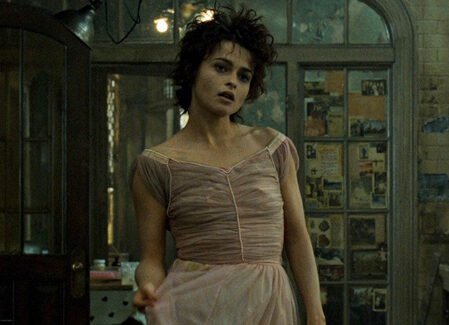
The disenchanted and emotionally troubled Marla, (played by Helena Bonham Carter in the film) plays a crucial role in the story as she becomes entangled in the lives of the main characters. Jack and Marla’s relationship is characterized by constant bickering and tension. Their interactions reflect their shared sense of alienation, disillusionment, and the search for meaning in their lives.
Clash of Ideologies
Jack and Tyler’s continual debates serve as profound metaphors throughout the storyline. Jack yearns for equilibrium and fulfilment in his life but often falls short. In contrast, Tyler Durden personifies the iconic anti-hero, who challenges prevailing norms, compelling viewers to question the trajectory of human existence and ponder if a vital aspect of life is slipping away. He offers radical change to Jack’s life and the way he thinks. As the story unfolds, Jack realises that although he needs change, Tyler’s ways may be too extreme for him.
“Advertising has us chasing cars and clothes, working jobs we hate so we can buy shit that we don’t need. We’re the middle children of history, man. No purpose or place. We have no Great War. No Great Depression. Our Great War’s a spiritual war . . . our Great Depression is our lives.”
(Tyler Durden - Fight Club)
The Tao of Tyler Durden
Tyler Durden is a complex character. Rebellious, Unconventional, Anti-establishment, Charismatic, Iconoclastic, Provocative. Tyler conveys several key messages throughout the story. These messages may be thought controversial by some, but thought provoking and useful to many.
Click on the links below for a look into Tyler's mindset.
Tyler represents a rejection of materialism and consumer culture. He encourages people to break free from the cycle of buying things they don’t need to find true fulfilment. Tyler advocates for living in the present and freeing oneself from the relentless pursuit of material possessions as markers of success. In the narrative, Jack represents the consumerism slave, illustrating how material objects can dominate and define one’s identity, perpetuating a cycle of comparison and competition. Tyler, as the anti-consumerist voice, urges individuals to seek true fulfilment, even if it means embarking on a challenging path. It encourages us to reevaluate our priorities and question the idea that material possessions are the path to genuine well-being in a society driven by rapid consumption.
Tyler epitomizes nonconformity and the challenge to societal norms. He encourages individuals to question and resist the pressure to conform to expected roles. Tyler’s rebellion against conformity, as depicted in “Fight Club,” carries both thought-provoking and potentially positive elements. Firstly, it promotes questioning the status quo in a world saturated with societal expectations, fostering critical thinking and a refusal to blindly adhere to established norms. This can lead to a more intellectually vibrant society where people make choices aligned with their true values rather than simply following the crowd.
Moreover, Tyler’s rebellion emphasizes the significance of individual authenticity, urging people to embrace their unique identities and express themselves honestly. This focus on authenticity can enhance self-awareness and personal growth, creating a society where individuals are encouraged to explore and manifest their true selves. Ultimately, Tyler’s rebellion against conformity acts as a catalyst for self-discovery and empowerment, challenging the complacency often associated with conformist mindsets.
Tyler advocates for living authentically, unburdened by societal expectations. He believes that embracing one’s true desires and instincts is the path to self-discovery. This involves making choices based on immediate desires and needs rather than conforming to societal expectations or pursuing external validations. Tyler’s emphasis on living authentically stems from a belief that many people lead lives of quiet desperation, trapped in jobs and routines that are incongruent with their true selves. By rejecting these societal constructs and making choices that prioritise their genuine desires, individuals can embark on a journey of self-discovery. This philosophy encourages people to confront the question of who they are beneath the layers of conformity and societal expectations, potentially leading to a more fulfilling and authentic existence. However, it’s worth noting that while this philosophy can be liberating, it also carries risks, as the line between self-discovery and recklessness can be thin, potentially resulting in unintended consequences and chaos.
Tyler Durden promotes detachment and the pursuit of authentic desires, drawing inspiration from Eastern philosophies such as Taoism and Buddhism. He sees loss as an opportunity for transformation, highlighting the impermanence of material possessions. In the story, Jack’s apartment’s destruction is a turning point, symbolizing an end for Jack but a fresh start for Tyler. Tyler’s perspective reframes loss as a catalyst for growth, leading to self-evaluation and the development of coping mechanisms. Practicing detachment involves letting go of hindrances, including material possessions and negative social ties, allowing individuals to pursue self-actualization independently. This approach grants the freedom to define personal meaning without external influences, without necessarily discarding everything but by shedding unnecessary baggage for genuine personal growth. Tyler Durden’s philosophy of detachment in “Fight Club” revolves around disconnecting from the trappings of modern consumerism and the emotional baggage that accompanies it, encouraging individuals to break free from their attachment to material possessions, societal expectations, and conventional self-conceptions.
Tyler’s anarchic approach to life represents a rejection of established rules and systems. He argues that chaos and destruction can be liberating and provide a fresh start. The embrace of chaos and anarchy can serve as a catalyst for personal growth and self-discovery. It prompts individuals to confront their fears, embrace risk, and challenge their comfort zones. By pushing boundaries and rejecting societal norms, people may find a deeper understanding of their own values, desires, and boundaries. This can lead to increased self-awareness and a more authentic way of living, as individuals navigate the chaos and anarchy in their lives to forge their own paths, potentially fostering a sense of autonomy and self-fulfilment. However, it’s important to note that while these potential positives exist, Tyler Durden’s philosophy in “Fight Club” also carries significant risks and destructive consequences, which must be carefully considered.
Modern men grapple with a disconnection from primal instincts due to societal shifts favouring female norms. This stifles innate masculine traits, leaving men boxed into conformity, economic pursuits, and monogamy, facing condemnation for deviation. “Fight Club” reflects this struggle, exposing modern masculinity as a commodified brand devoid of authenticity. Jack, Tyler, and club members challenge societal norms, seeking self-discovery by embracing physical and emotional challenges. The film underscores the fear of losing one’s manhood, exposing the link between perceived masculinity and power. Ultimately, “Fight Club” urges men to confront repressed instincts and redefine their identities in a stifling society.
Tyler seeks to reestablish a sense of masculinity in a world he perceives as emasculating. He sees physical combat as a means to reconnect with primal instincts. Tyler Durden’s concept of masculinity in “Fight Club” is portrayed as an extreme and unconventional interpretation of traditional masculinity. He rejects the stereotypical ideals of a successful, conforming man, which often revolve around a steady job, consumerism, and societal expectations. Instead, Tyler promotes a hyper-masculine ethos defined by rebellion, physicality, and an anarchic philosophy that rejects the constraints of society. He encourages men to reclaim their sense of identity by embracing raw, physical experiences, embodied in the brutal Fight Club matches.
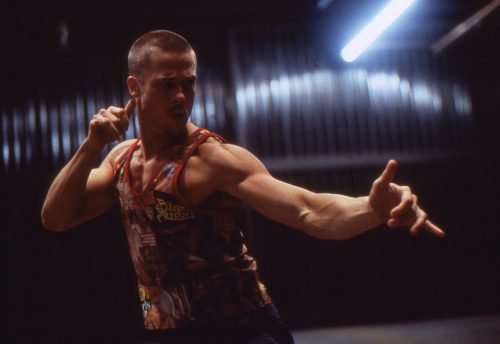
"This is your life and it’s ending one minute at a time.”
(Jack - Fight Club)
Tyler Durden’s acts of sabotage and rebellion against powerful institutions in “Fight Club” underscore the central theme of questioning authority and the pervasive control that these entities exert over individuals. His subversive actions, including the destruction of corporate art and the targeting of credit card companies, represent a call for resistance against the mechanisms of consumerism and capitalism that shape modern society.
These acts serve as a means to challenge the established power structures that dictate individuals’ lives, often leading to conformity and a loss of individuality. In a society where corporations and institutions wield immense influence, Tyler’s actions are a wake-up call to reevaluate the control we surrender in exchange for convenience and conformity. This theme resonates with the larger societal critique in the story, prompting viewers to reflect on the extent to which they willingly comply with systems of authority and the potential consequences of that compliance on their personal agency and identity. Tyler Durden’s character thus becomes a powerful catalyst for discussions on resistance, personal freedom, and the consequences of acquiescence to authority.
Tyler Durden’s philosophy in “Fight Club” emphasises the importance of embracing imperfection and the inherent chaos of life. This message is a departure from the mainstream societal preoccupation with the relentless pursuit of an idealised future or dwelling on past mistakes. Instead, Tyler encourages individuals to be present in the moment, recognizing that the quest for perfection is ultimately unattainable. This perspective acknowledges that life is inherently unpredictable and filled with uncontrollable variables. It invites individuals to free themselves from the burden of unattainable standards, constant self-critique and the ceaseless chase of an idealised self. This philosophy promotes self-acceptance, allowing individuals to recognize their flaws and complexities as integral parts of their identity.
In essence, Tyler’s message is a call to live authentically and to appreciate the beauty in life’s imperfections. It encourages individuals to let go of the relentless pursuit of an unattainable ideal and to find fulfilment in the present moment, accepting themselves and their circumstances as they are. This perspective offers a refreshing counterpoint to the societal pressure to constantly seek an elusive state of perfection.
Tyler Durden’s call for ‘self-destruction’ in “Fight Club” delves into the concept of dismantling the illusions constructed by the ego. He proposes that this process serves as a means to achieve true liberation. These illusions can encompass various aspects of an individual’s life, from societal expectations and materialism to ego-driven insecurities and anxieties. By breaking down these illusions, one is meant to shed the burdens of their past and release the anxieties tied to an uncertain future. In doing so, individuals can achieve a profound shift in perspective, focusing more on living in the present moment.
This theme underscores the idea that true freedom comes when individuals confront the illusions of their ego and break free from them. The notion of living in the present moment is central to this philosophy, as it encourages individuals to release the weight of past regrets and future worries and instead focus on the immediate experience of life. This perspective aligns with practices such as mindfulness and meditation, which emphasise the value of being fully present in one’s experiences. In essence, Tyler Durden’s call for ‘self-destruction’ is a radical approach to achieving a sense of freedom and authenticity by confronting and dismantling the illusions created by the ego.
There are several philosophical concepts that resonate with Tyler’s outlook on life, urging us to seize the present and acknowledge life’s fleeting nature. One of these is ‘Carpe Diem,’ which translates to ‘seize the day.’ This concept encourages us to embrace the present moment fully, emphasizing how easily we become distracted by daily routines and how we often avoid thoughts of our own mortality. The Stoic practice of ‘Memento Mori,’ which underscores the certainty of death, is another powerful reminder to make each day count. Tyler Durden’s embodiment of living in the present in ‘Fight Club’ stands in stark contrast to Jack’s fixation on appearances and trends, amplifying the urgency of life. This overarching message serves as a call to lead an authentic life by taking meaningful actions in line with personal values rather than conforming to external expectations. ‘Fight Club’ exemplifies this philosophy by focusing on personal transformation, embracing life’s raw realities, and nurturing self-trust. While Tyler’s methods offer a cautionary lesson, the core message remains resolute: seize life’s opportunities, freeing yourself from past anxieties and future uncertainties.
Our pursuit of comfort has left us ill-equipped to face life’s hardships. In Fight Club, Tyler demonstrates that enduring challenges can be transformative. This lesson applies broadly—achievements demand sacrifice, whether by historical explorers or modern athletes. Society’s shortcuts can rob us of character-building experiences rooted in commitment and effort.
Fear often hinders our goals and purpose. Embracing our lack of control over external events is crucial. The philosophical concept ‘Amor Fati’* encourages us to embrace whatever fate brings, turning obstacles into sources of strength. By focusing on our purpose, regardless of external factors, we find a more meaningful life. Letting go of uncontrollable aspects and channelling energy into our goals leads to true fulfilment.
*Amor Fati is a Latin phrase meaning “love of fate.” It encapsulates the idea of embracing and accepting one’s fate or destiny, both the positive and negative aspects, with an attitude of love and gratitude.
Tyler advocates the need to confront mortality head-on, arguing that the fear of death often stifles genuine living. In his view, embracing the reality of death enables individuals to break free from societal constraints and expectations. Tyler perceives death as a liberating force that can unburden people from the relentless pursuit of consumerism, material possessions, and conformity. He contends that the rejection of safety and the embrace of risk are essential for personal growth, as a life devoid of challenges is, in essence, a form of spiritual death. Additionally, his views on death are intricately connected to his belief in anarchy and the dismantling of societal structures, viewing the death of the old world as a precursor to a more authentic and liberated existence. It’s worth noting that Tyler Durden’s views on death are presented within the fictional context of the story, designed to be provocative and challenging to prevailing societal norms.
In a pivotal scene, Tyler challenges Jack to a physical confrontation, questioning how one can truly know oneself without experiencing a fight. This interaction sparks the inception of Fight Club. The narrative promotes recognizing and channelling innate aggression into constructive pursuits, like competitive sports. It argues that understanding and embracing our primal instincts, rather than suppressing them, fosters personal growth and resilience. The portrayal of Fight Club’s confrontations invites contemplation about the role of aggression and the potential benefit of introducing structured outlets like martial arts in schools to help individuals, especially children, channel their aggression in a healthy way.

Overall, Tyler Durden’s character serves as a provocative figure that challenges the status quo, encouraging individuals to reevaluate their values, question societal norms, and consider the consequences of their actions in the pursuit of authenticity and liberation.
“You have to know, not fear, that someday you are going to die. Until you know that and embrace that you are useless.”
(Tyler Durden - Fight Club)
Break from Tyler
Towards the end of the story, Jack breaks away from Tylers extremism and violence. He begins to challenge the more extreme elements of his philosophies. No spoilers here, save that their ideologies come into contest leading to a showdown of sorts. Jack rejects the destructive elements of Tyler’s worldview, including the violence and chaos, and comes to an understanding that perfection is unattainable.
In Jack’s search for balance and self-awareness, he acknowledges his personal flaws and destructive behaviours. His rejection of extremism and violence as a solution signifies a commitment to a more balanced and empathetic perspective. Ultimately, his return to the ordinary world symbolises the synthesis of his internal struggles and the acceptance of his complex identity, aligning with the Hegelian notion of synthesis as a resolution of opposing forces.
Dialectical Synthesis
Georg Wilhelm Friedrich Hegel’s concept of dialectical synthesis involves the clash of opposing ideas (thesis and antithesis) to produce a higher form of truth or understanding (synthesis). ‘Fight Club,’ when viewed through this paradigm, showcases the protagonist’s transformative journey and the synthesis of conflicting ideologies.
- Thesis (Apathy, Consumerism): The protagonist’s initial state of existence is characterised by apathy and immersion in consumer culture. He is disconnected, disenchanted, and seeks meaning in the accumulation of material possessions.
- Antithesis (Tyler’s World – Go-getting Machismo): Tyler Durden represents the extreme opposite—a rejection of consumerism and a radical embrace of a hyper-masculine, anarchic philosophy. Tyler’s world is one of aggression, chaos, and a rebellion against societal norms.
- Synthesis (Middle Path): As the story progresses, the protagonist undergoes a transformative journey. Rather than fully succumbing to either extreme, he begins to synthesise elements from both ideologies. He rejects the mindless consumerism and apathy of his former life while also recognizing the dangers of Tyler’s extreme, anarchic philosophy.
In a sense, he synthesises the lessons from both his initial state of apathy and Tyler’s aggressive rebellion, creating a more balanced perspective.
Resolution
The narrator’s rejection of Tyler Durden’s extremist ideology in “Fight Club” represents a pivotal shift towards balance, self-awareness, and a refusal to embrace absolute destructive beliefs. This decision highlights the importance of individual responsibility, emphasising that accountability for one’s actions is essential for personal growth. It also underscores the value of human connections and empathy, as the narrator’s relationships become more significant in the story, particularly his connection with Marla. Rejecting extremism reflects an understanding that avoiding life’s complexities through destructive means is unsustainable and unhealthy. The choice signifies a move toward a more balanced perspective, accepting imperfection, rejecting violence as a solution, and emphasising the importance of mental health and overall well-being. Ultimately, it marks a step towards personal growth and self-acceptance, encouraging a more authentic and balanced way of living.
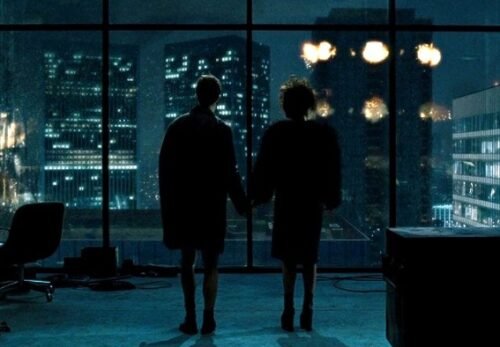
Where is my mind? Towards the end, Jack and Marla’s relationship experiences a sudden shift.
In essence, the narrator’s rejection of extremism not only impacts the narrator’s personal journey but also serves as a larger commentary on the dangers of extreme ideologies in society.
“It’s only after we’ve lost everything that we’re free to do anything.”
(Tyler Durden - Fight Club)
Discussion
“Fight Club” offers valuable lessons from both Tyler’s philosophy and Jack’s resolution. Tyler’s radical approach challenges us to question societal norms, fostering a sense of individuality and self-confidence. While his extremism has its downsides, it prompts reflection on the potential for personal transformation through challenging the status quo.
On the other hand, Jack’s ultimate rejection of Tyler’s extremism emphasises the importance of balance and self-awareness. It highlights the need for individual responsibility, meaningful human connections, and the acknowledgment of personal flaws. Together, these elements teach us that embracing our complex identity, seeking moderation, and understanding the consequences of our actions can lead to personal growth, resilience, and a more authentic and fulfilling life. “Fight Club” encourages us to find a middle ground between conformity and extremism, ultimately striving for a healthier and more harmonious existence.
“I say never be complete, I say stop being perfect, I say let’s evolve, let the chips fall where they may.”
(Tyler Durden - Fight Club)
If you have enjoyed this post please share or feel free to comment below 
Related Posts
Other Posts






Crash Course Brazilian Jiu Jitsu Pt1
An insight into Brazil’s legendary grappling art and some of its techniques. BJJ-curious? Start here!
You may also like
3 thoughts on “The Philosophy of Fight Club.”
Leave a Reply Cancel reply
This site uses Akismet to reduce spam. Learn how your comment data is processed.

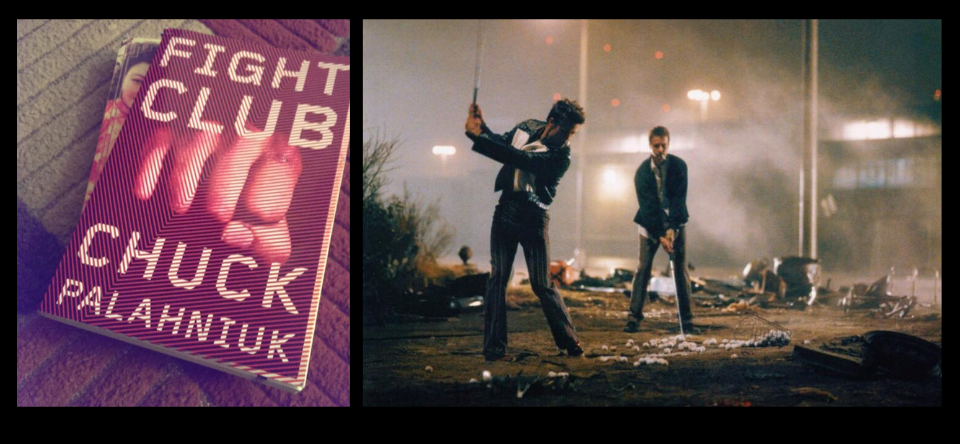



Great post and I think you captured this book perfectly.
I was 18 when the movie was released and it felt like an initiation or rite of passage which has led me on a very interesting and rewarding journey called Life.
Thanks for the post!
Hey thanks, I am glad you enjoyed. Yes it was some movie all right. Just don’t make em like they used to. 🙂
Excellent discussion of the philosophy and issues apparently at the core of the film and the book. I hadn’t thought about it ultimately leading to a moderate course and the rejection of extremism. Perhaps Aristotle is alive and well in the story after all.